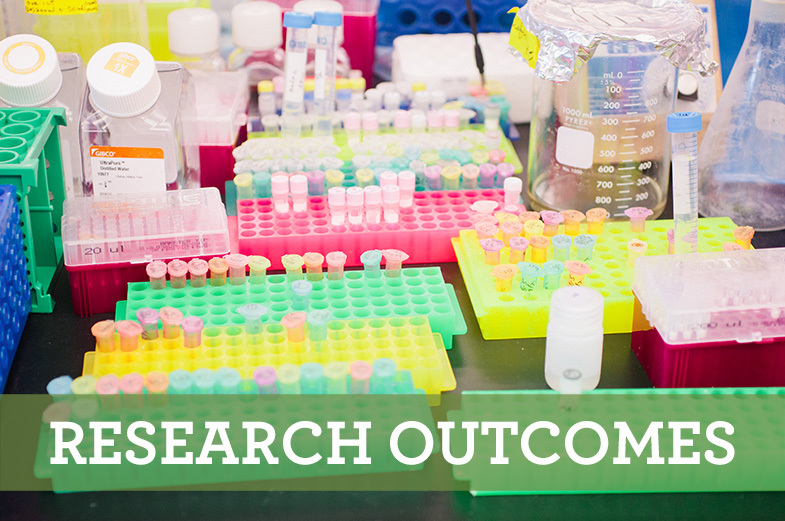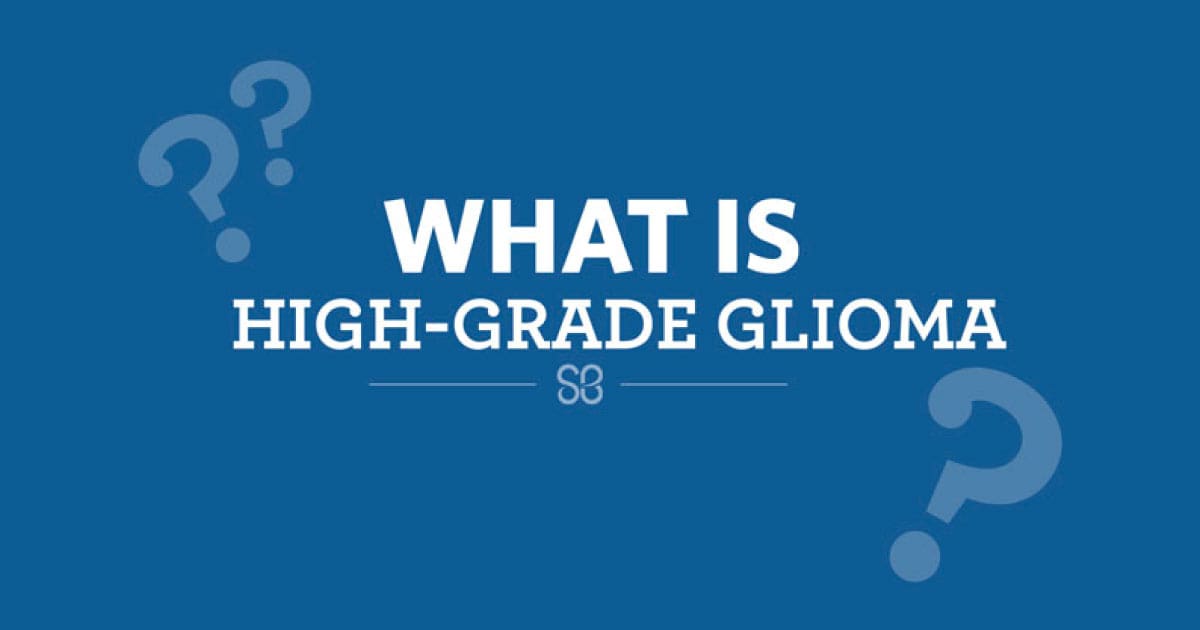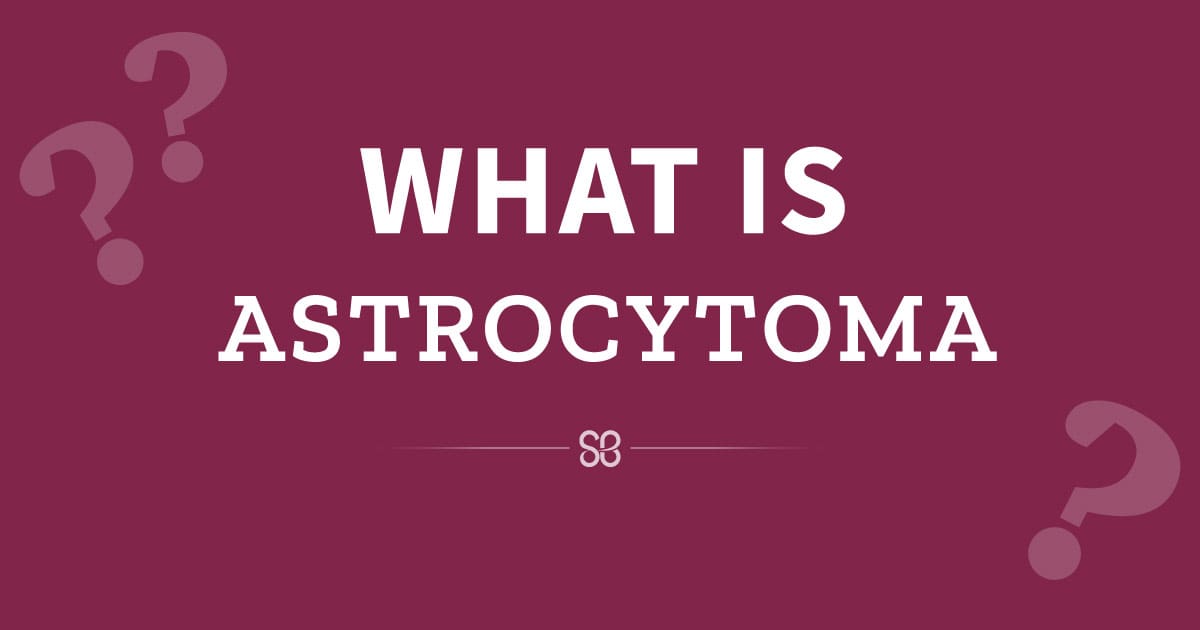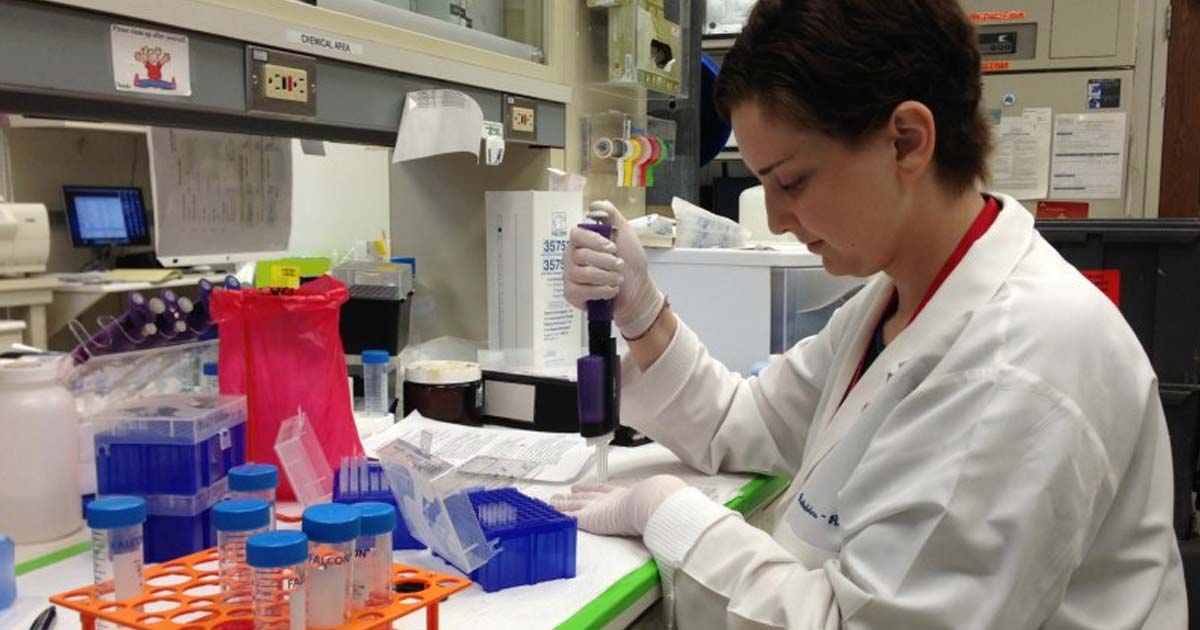Our St. Baldrick’s Foundation Research Outcomes blogs highlight examples of the progress your donations are supporting. This quarterly edition focuses on understanding how rhabdomyosarcoma grows, using immunotherapy to treat pediatric brain tumors and relapsed neuroblastoma, as well as research to understand the experiences of adolescents and young adults being treated for advanced pediatric cancer.
Thank you for making research – and hope — possible.
Mapping Rhabdomyosarcoma
St. Baldrick’s Scholar Dr. Benjamin Stanton and colleagues recently published the first comprehensive, 3D analysis of the complete rhabdomyosarcoma genome. The survival rates for rhabdomyosarcoma vary widely depending on the stage and subtype, making it a challenging condition to treat effectively.
To address this, Dr. Stanton looked at the genome of rhabdomyosarcoma in a new and detailed way – like examining it in 3D instead of just reading it in a straight line. This 3D analysis helped them find factors that control how the cancer grows and how certain genes work together. This knowledge could help doctors find better treatments in the future.
The 2021 and 2022 portions of this grant is funded by and named for the Aiden’s Army Fund, inspired by Aiden’s battle with stage IV rhabdomyosarcoma and his vision to cure cancer. The 2023 year of this grant is supported by Berry Strong, a St. Baldrick’s Hero Fund honoring the memory of Caroline.
Treating Relapsed Neuroblastoma with Immunotherapy: Interim Phase 1 Trial Results
Dr. Andras Heczey, a St. Baldrick’s Foundation – American Cancer Society awardee, recently published interim results from a Phase 1 clinical trial. In this study, researchers tested an immunotherapy in 12 kids with neuroblastoma. The main goals of the study are to check if the treatment is safe and to find how much can be given without causing severe side effects.
The results showed that the treatment was safe and well-tolerated.
25% of the children responded positively to the treatment, with two showing partial improvement and one experiencing complete tumor shrinkage. They also discovered that a certain gene called BTG1, when suppressed in the immune cells, made them even more effective in attacking cancer cells in models. Next steps include understanding how BTG1 interferes with the immune cells.
“I won’t get to live my life the way I planned it” — Empowering Young People
To better understand their perspectives and experiences, Dr. Abby Rosenberg and colleagues interviewed adolescents and young adults (AYAs) ages 14-25 years who were receiving treatment for advanced cancer. After analysis they noticed three global themes: “Do I have a future?”, “Those decisions … were really hard.”, and “I felt very alone.” These results provide justification for psychological support interventions to empower AYAs to navigate difficult decisions and to cope with isolation.
An EPICC Battle: Using Immunotherapy to Fight Brain Tumors
Children with many kinds of cancer – from leukemia to solid tumors – have new hope with the rising success of a type of immunotherapy called CAR T cell therapy. Despite notable progress in leukemia, solid tumors – especially brain tumors – have proven far more difficult.
One exciting development is that Dr. Michelle Monje, a member of the St. Baldrick’s Foundation EPICC Team (Empowering Pediatric Immunotherapies for Childhood Cancer) Team, recently observed success and high response rates in clinical trial of a particular CAR T cell therapy for one of the most difficult childhood brain tumors, diffuse midline gliomas (DMG).
Even so, all but one of the patients on this trial have eventually developed progressive disease. With St. Baldrick’s Foundation support, Dr. Monje and team are now working to understand why.
With increased understanding of the biology of CAR T cells and the use of emerging next generation designs, the team is developing novel, stronger, GD2-CAR T cells suitable for testing in childhood brain tumors. You can help support this exciting work.
Not every publication of research supported by St. Baldrick’s makes the news, but each one adds to the body of scientific knowledge that takes us one step closer to better outcomes for kids with cancer. Your continued support will make more research possible to Conquer Kids’ Cancer.
Donate now and help support research into better treatments for kids with cancer.
Donate



